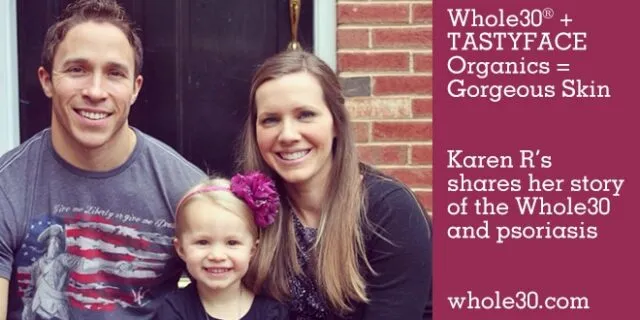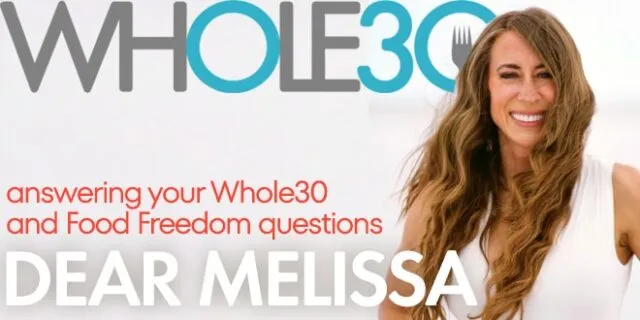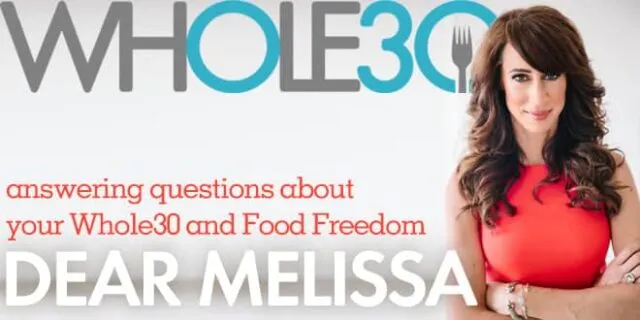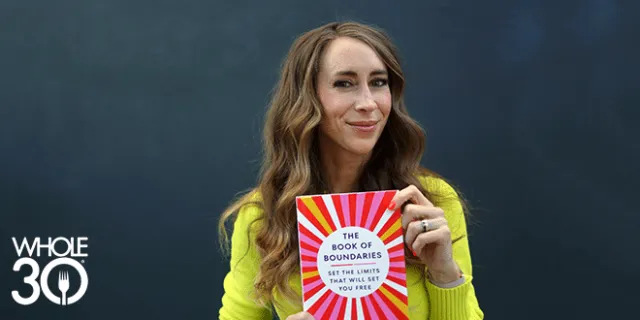Since the Whole30 program is primarily about your dietary choices, it’s easy to see why some people are calling the Whole30 “the hottest fad diet.” The national media coverage we’ve received may only reinforce that idea, as magazines and TV introduce us by saying, “as featured on The Today Show and Good Morning America.” And at first glance, we get it. The Whole30 is a short-term program revolving around food with strict rules and some “trendy” components (like eliminating gluten). But the Whole30 is the furthest thing from a fad diet. In fact, it’s not a diet at all—at least not in the way that most people think about being “on a diet.” (Yes, the word “diet” can simply refer to what a person eats, but that’s not the context we’re talking about here.) So for those of you fielding questions from family and friends about this new “diet” you’re on (or considering taking on the Whole30, but wondering how we’re different from everything else you’ve tried), let’s outline the difference between all those other diets and the Whole30 program.
Diets: The General Template
The truth is, study after study show that diets fail to provide long-term, sustainable health results. While there are a variety of reasons, here is our analysis: First, diets focus only on weight loss. The scale is your only metric for success, which forces you to be a slave to a $20 hunk of plastic, and blinds you to the other potentially life-changing benefits of changing your diet and making yourself healthier. 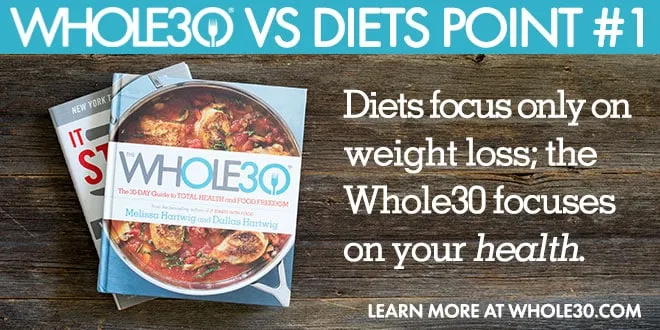 These diets assume the only thing you care about is your body composition—that improving your energy, sleep quality, chronic pain, medical condition, and quality of life aren’t as important as how much you weigh. We find that rude, and assumptive. They’re not giving you anywhere near enough credit. In addition, diets are almost always dependent on caloric restriction, which often requires counting, measuring, or tracking your food; a tedious, unsustainable practice. And because they often don’t delve into the why of the program, connecting with you intellectually and emotionally and providing you with internal motivation to stick with it, you’re forced to rely on sheer willpower to see the program through. Diets also don’t address your habits or your relationship with food, only your temporary intake. They don’t teach you how to reward yourself in a different way, how to address your emotional connection with food, how to build healthy food habits (or break existing bad habits), or how to change your tastes to favor fresh, nutritious food. In fact, most encourage pre-packaged food, bars, shakes, or powders, all of which move you even further away from a healthy relationship with food. Finally, diets offer little to no structured support, motivation, or accountability while you’re on the program—just a list of “do” and “don’t”—and no preparation for re-entering the “real world” when the diet is over. But they’ll promise you this is the one that will work, and you’ll never have to diet ever again—as if once you lose 10 pounds, your tastes, dietary habits, and emotional relationship with food will be so completely transformed that you’ll never go back to the same foods you’ve been eating for decades—the very choices that made you overweight and unhealthy in the first place. It must be magic.
These diets assume the only thing you care about is your body composition—that improving your energy, sleep quality, chronic pain, medical condition, and quality of life aren’t as important as how much you weigh. We find that rude, and assumptive. They’re not giving you anywhere near enough credit. In addition, diets are almost always dependent on caloric restriction, which often requires counting, measuring, or tracking your food; a tedious, unsustainable practice. And because they often don’t delve into the why of the program, connecting with you intellectually and emotionally and providing you with internal motivation to stick with it, you’re forced to rely on sheer willpower to see the program through. Diets also don’t address your habits or your relationship with food, only your temporary intake. They don’t teach you how to reward yourself in a different way, how to address your emotional connection with food, how to build healthy food habits (or break existing bad habits), or how to change your tastes to favor fresh, nutritious food. In fact, most encourage pre-packaged food, bars, shakes, or powders, all of which move you even further away from a healthy relationship with food. Finally, diets offer little to no structured support, motivation, or accountability while you’re on the program—just a list of “do” and “don’t”—and no preparation for re-entering the “real world” when the diet is over. But they’ll promise you this is the one that will work, and you’ll never have to diet ever again—as if once you lose 10 pounds, your tastes, dietary habits, and emotional relationship with food will be so completely transformed that you’ll never go back to the same foods you’ve been eating for decades—the very choices that made you overweight and unhealthy in the first place. It must be magic.
Diets: The Results
The results? (You could recite this as well as we could.) You white-knuckle your way through the diet, forced to expend willpower making hard decisions dozens of times a day, because you’re not being supported and you don’t have a plan to actually change your habits, your tastes, or the way you think about food. You spend the entirety of the diet paying attention to nothing but the rules, consciously overriding your body’s natural signals (I’m hungry!) and stepping on that scale every morning crossing your fingers, your self-confidence hanging in the balance. 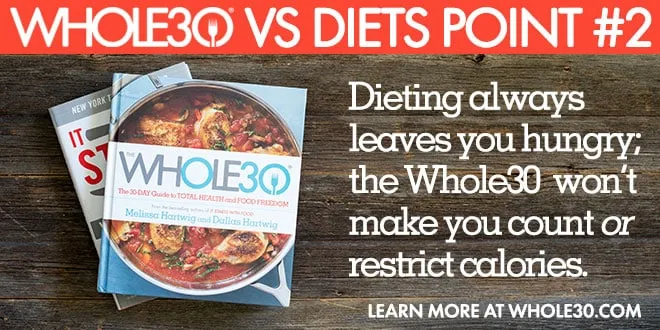 And yes, you lose weight—but let’s not celebrate just yet. The fact is, your metabolism is actually slower than it used to be, and you’re hungrier than you ever were, and your cravings are getting stronger by the day, because you’ve been calorically deprived and overdrawing on your willpower bank. And now the diet is over and you’re wondering, now what? Oh, but first, because you succeeded and lost weight, you deserve a treat, you can afford to relax a little, so you reward yourself with the unhealthy food your brain has been screaming for… And slowly but surely, you slide right back into your old habits and regain all the weight (and then some), because you feel like a failure and eat even more to compensate for the stress, guilt, and shame. Sound familiar? We thought so.
And yes, you lose weight—but let’s not celebrate just yet. The fact is, your metabolism is actually slower than it used to be, and you’re hungrier than you ever were, and your cravings are getting stronger by the day, because you’ve been calorically deprived and overdrawing on your willpower bank. And now the diet is over and you’re wondering, now what? Oh, but first, because you succeeded and lost weight, you deserve a treat, you can afford to relax a little, so you reward yourself with the unhealthy food your brain has been screaming for… And slowly but surely, you slide right back into your old habits and regain all the weight (and then some), because you feel like a failure and eat even more to compensate for the stress, guilt, and shame. Sound familiar? We thought so.
Whole30: Why We’re Different
The Whole30 is not a diet—it’s the catalyst for a whole new lifestyle. We’re focused on health, not weight loss. In fact, you’re not even allowed to step on the scale for the duration of the program, giving you a welcome and well-deserved respite from the obsession with body weight and freeing you up to observe and appreciate all of the benefits in so many areas of your life—improvements in energy, sleep, cravings, attention span, mood, athletic performance and recovery, self-confidence, digestion, pain, fatigue, and other medical symptoms. (See page 43 in The Whole30 for a very long list.) There’s no caloric restriction. You are never hungry. There is no counting, measuring, or tracking your food. We start you off with basic portion guidelines, but our program’s structure gets you back in touch with your body’s own signals to help you figure out how much to eat. 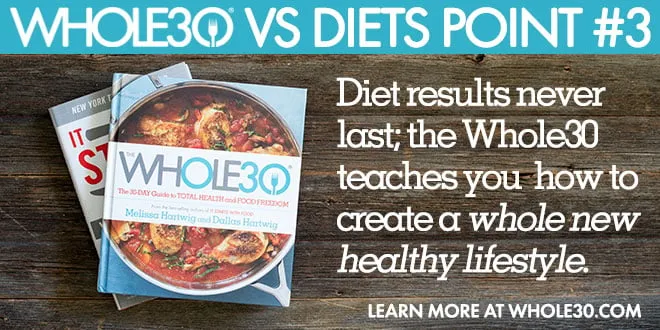 Start to finish, it’s designed to create new, healthy habits and help you become aware of, evaluate, and change your relationship with food. We’ve built lessons learned from habit and willpower research right into the program (and the support we offer) because nothing changes long-term until you actively work to create new, healthy habits and evaluate the reasons behind your less healthy food choices. The guidelines even help you change your tastes, so by the end of the program, you’ll have a new appreciation for the delicious flavors in fresh, healthy foods, and may find some of your old “treats” less enjoyable, making it easier to say “no.” We also offer a robust support network for the duration of your program, as well as ongoing tips, tools, and written guidance for “life after your Whole30,” so you finish the program with a clear plan of how to incorporate everything you’ve learned into the rest of your life.
Start to finish, it’s designed to create new, healthy habits and help you become aware of, evaluate, and change your relationship with food. We’ve built lessons learned from habit and willpower research right into the program (and the support we offer) because nothing changes long-term until you actively work to create new, healthy habits and evaluate the reasons behind your less healthy food choices. The guidelines even help you change your tastes, so by the end of the program, you’ll have a new appreciation for the delicious flavors in fresh, healthy foods, and may find some of your old “treats” less enjoyable, making it easier to say “no.” We also offer a robust support network for the duration of your program, as well as ongoing tips, tools, and written guidance for “life after your Whole30,” so you finish the program with a clear plan of how to incorporate everything you’ve learned into the rest of your life.
Whole30: The Results
So what happens on the Whole30? You prepare physically, psychologically, emotionally for the program, using our resources and feedback from our community, feeling supported through the entire process. You understand why the program rules are specifically designed in this manner, and you’ve connected with one or more emotional, psychological, or physiological benefits of the program, giving you an internal motivation (far stronger than “beach weather is coming”) to see it through. During your 30 days, you pay attention to what’s changing in your body and your brain every step of the way, because you’re free from the tyranny of the scale. You create new, healthy habits and discover new ways to reward yourself, comfort yourself, receive love from others. You’re never hungry, which makes your cravings less powerful. Your tastes change, your cravings dissipate, and you discover new foods to love. 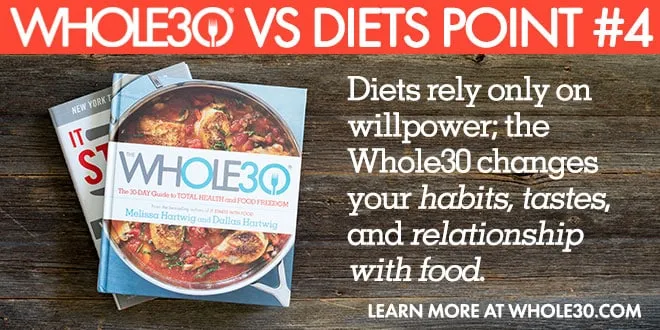 You re-learn how to listen to your body, sleep better, have more energy, feel more confident. You successfully change your life (and you may buy have to buy new pants). You are able to create your own perfect healthy eating plan based on what you’ve learned from your Whole30 reintroduction. You lose the idea of food being good or bad, there is no more guilt or shame, only choices, and consequences. You stay close to our community once you’re back in the “real world” living your new, healthy habits, and come back to the program for a reset if a vacation, holiday, or stressful event throws you off your healthy-eating game. You could do this forever and be optimally healthy… but eventually, you won’t need to come back to the program, because you’ll be making Good Food decisions for yourself out there in the real world effortlessly, and your new healthy habits will be so ingrained that you’ll no longer need the Whole30 at all. Yes, the final way we’re different is that unlike other diets, the Whole30 is designed to make itself obsolete. (More on this next Monday, from co-creator Dallas Hartwig.)
You re-learn how to listen to your body, sleep better, have more energy, feel more confident. You successfully change your life (and you may buy have to buy new pants). You are able to create your own perfect healthy eating plan based on what you’ve learned from your Whole30 reintroduction. You lose the idea of food being good or bad, there is no more guilt or shame, only choices, and consequences. You stay close to our community once you’re back in the “real world” living your new, healthy habits, and come back to the program for a reset if a vacation, holiday, or stressful event throws you off your healthy-eating game. You could do this forever and be optimally healthy… but eventually, you won’t need to come back to the program, because you’ll be making Good Food decisions for yourself out there in the real world effortlessly, and your new healthy habits will be so ingrained that you’ll no longer need the Whole30 at all. Yes, the final way we’re different is that unlike other diets, the Whole30 is designed to make itself obsolete. (More on this next Monday, from co-creator Dallas Hartwig.)
We Are Whole30
This is the Whole30—a catalyst that sparks positive changes in every area of your life. It’s a return to a healthy relationship with food and finally feeling in back in control of your food choices. It makes you healthier from the inside-out and gives participants a self-confidence you didn’t think you could achieve just by changing the food you put on your plate. In the words so many participants use to describe their results, we help people achieve “food freedom.” And that’s about as far from a fad diet as we could imagine.
Header image: self.com; Graphics photo credit: Stephanie Gaudreau

